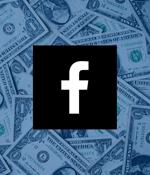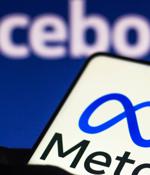Security News

In this video for Help Net Security, Nick Ascoli, VP of Threat Research, PIXM, discusses a massive phishing campaign has successfully stolen an estimated five million Facebook accounts. The campaign continues to spread virally through Facebook Messenger on mobile devices as the primary target vector.

For months now, millions of Facebook users have been duped by the same phishing scam that cons users into handing over their account credentials. According to a report outlining the phishing campaign, the scam is still active and continues to push victims to a fake Facebook login page where victims are enticed to submit their Facebook credentials.

An ongoing phishing campaign targeting Facebook users may have already netted hundreds of millions of credentials and a claimed $59 million, and it's only getting bigger. Identified by security researchers at phishing prevention company Pixm in late 2021, the campaign has only been running since the final quarter of last year, but has already proven incredibly successful.

A cybercriminal stole 1 million Facebook account credentials over 4 months. As phishing attacks continue to be a go-to for threat actors, one scam found that a user had stolen a million Facebook account credentials over a span of just four months.

Researchers have uncovered a large-scale phishing operation that abused Facebook and Messenger to lure millions of users to phishing pages, tricking them into entering their account credentials and seeing advertisements. While it is unknown how the campaign initially started, PIXM states victims arrived at phishing landing pages from a series of redirects originating from Facebook Messenger.

Meta's ad transparency tools will soon reveal another treasure trove of data: advertiser targeting choices for political, election-related, and social issue spots. Meta said it plans to add the targeting data into its Facebook Open Research and Transparency environment for academic researchers at the end of May. The move comes a day after Meta's reputation as a bad data custodian resurfaced with news of a lawsuit filed in Washington DC against CEO Mark Zuckerberg.

A newly implemented e-commerce rating system in the city-state of Singapore has rated Facebook's Marketplace as the least trustworthy e-commerce platform, behind Amazon and its Alibaba-owned Asian analogue Lazada. The ratings system, known as the E-commerce Marketplace Transaction Safety Ratings [PDF], was launched on May 14th by the Inter-Ministry Committee on Scams.
Meta's Facebook subsidiary has been collecting hashed personal data from students seeking US government financial aid, even from those without a Facebook account and those not logged into the student aid website, according to a research study published this week. News non-profit The Markup, working with Mozilla via its Rally data monitoring extension, found that the Meta pixel code has been gathering digital fingerprints representing the first name, last name, phone number, zip code, and email address of students filling out the Free Application for Federal Student Aid, or FAFSA, on the US Department of Education's StudentAid.

This includes Kremlin-backed operations looking to spy on and influence specific Ukrainian industries, including defense, energy, and telecoms, as well as journalists and activists in Ukraine, Russia and abroad. In one example, Meta says it removed fake-news posts linked to the Belarusian KGB. This account began posting misinformation in Polish and English about Ukrainian troops surrendering without a fight and the nation's leaders fleeing the country on February 24 when Russia began its "Special military operation" against the neighboring state. Ghostwriter has tried to hack into "Dozens" of Ukrainian military personnel's Facebook accounts, according to Meta's new threat report.

A new information stealer named FFDroider has emerged, stealing credentials and cookies stored in browsers to hijack victims' social media accounts. Like many malware, FFDroider is spread through software cracks, free software, games, and other files downloaded from torrent sites.